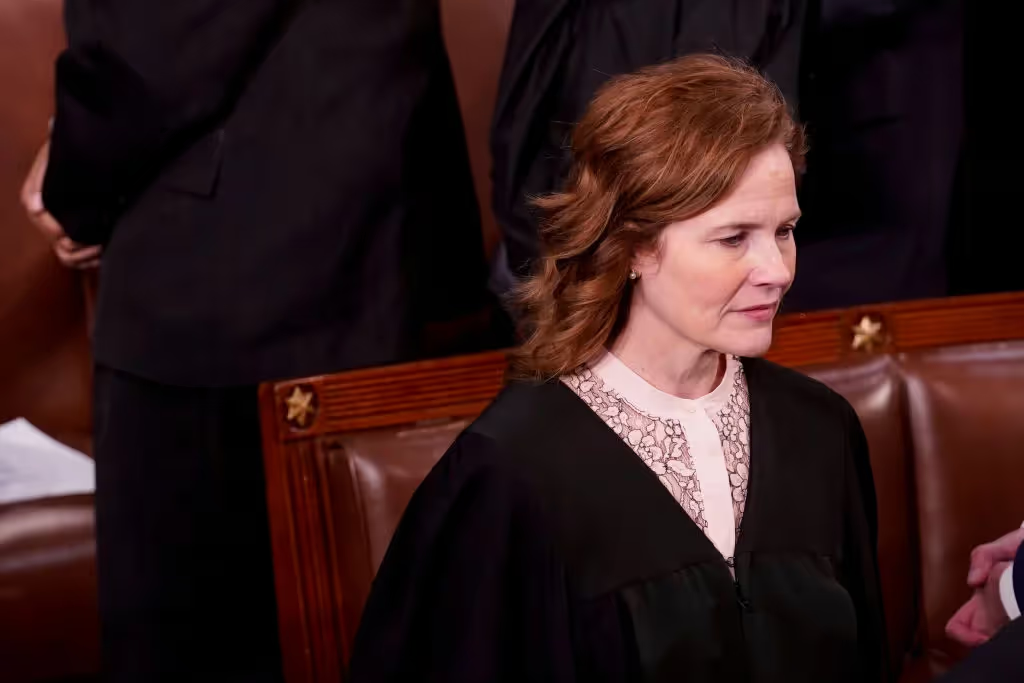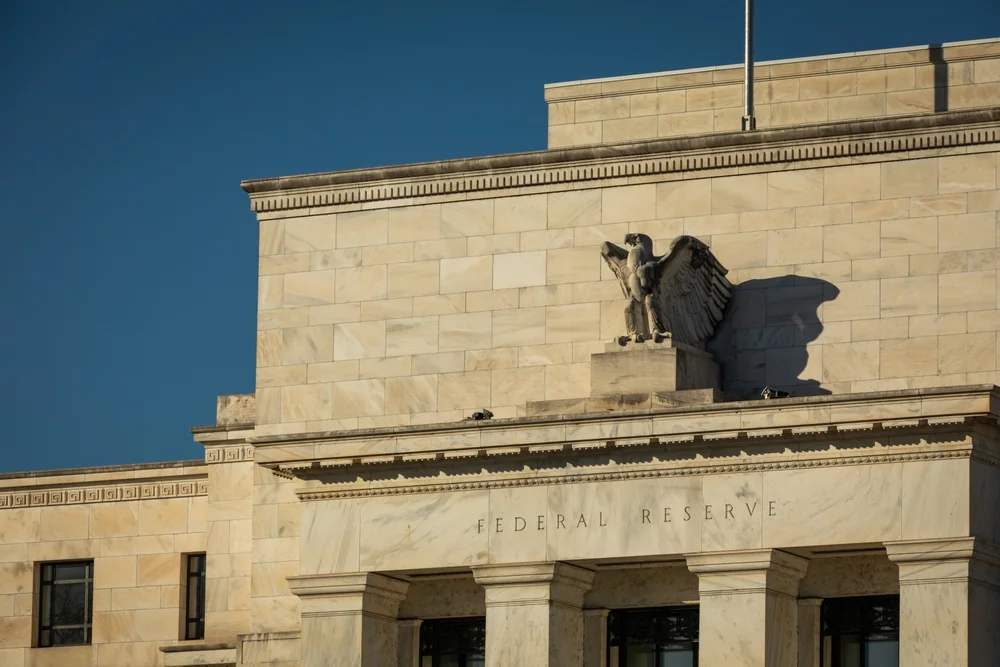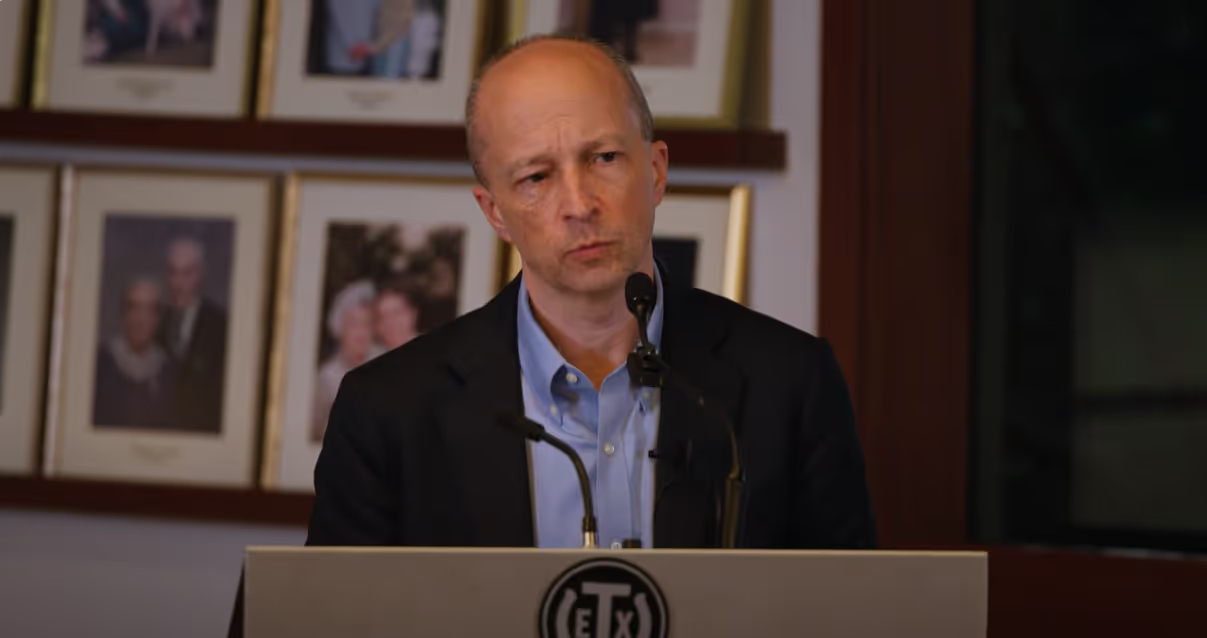
A Listening Heart
Listening to the Law is a valuable contribution to public discourse about the role of the courts and the Constitution.
Amy Coney Barrett was not a likely judge, let alone a likely Supreme Court justice. A young Amy Coney did not even aspire to be a lawyer. She only settled on law school after college, over pursuing an English PhD, and excelled. She was an exceptional student who earned the admiration of her classmates and the profound respect of her professors, who would soon invite her to become a colleague. In 2002, she joined the faculty of the Notre Dame Law School, seeming to fulfill her professional vocation.
Just as her intellect had always attracted the notice of her peers, then-Professor Barrett attracted notice within the conservative legal movement. This led to her appointment to the U.S. Court of Appeals for the Seventh Circuit — one of several academics placed on the appellate bench during President Trump’s first term — and just three years later, her elevation to the U.S. Supreme Court, replacing Justice Ruth Bader Ginsburg.
Within a year of joining the Court, Justice Barrett signed a book deal reportedly worth $2 million. The deal raised eyebrows in some quarters, even though most other recently confirmed justices have done the same, and some have earned more. Justice Barrett’s book itself, Listening to the Law: Reflections on the Court and Constitution, should not provoke much controversy, however. An instant New York Times best-seller, it is a valuable contribution to public discourse about the role of the courts and the Constitution.
Although Justice Barrett was an academic, this is not an academic book; far from it. Listening to the Law is written for an educated lay audience. It seeks to elucidate and explain, not break new ground. It is accessible and clear but not simplistic. In this regard, it has much in common with the late Chief Justice William Rehnquist’s book on the Supreme Court, though it is also a bit more revealing and prescriptive. Indeed, Listening to the Law is likely the best lay introduction to the Court, the Constitution, and the reigning judicial philosophy in print. (And given how often critics of originalism struggle with fairly characterizing the target of their efforts, quite a few practitioners and legal academics would benefit from reading it too.)
After an introductory essay on Justice Barrett’s personal trajectory and path to the Court, the book is divided into three sections, one on the Supreme Court, one on the Constitution, and one on Justice Barrett’s approach to legal interpretation — an approach largely embraced by the majority of her colleagues.
The first section is likely of most value to those for whom the work at One First Street is shrouded in mystery. It helpfully demystifies how the justices go about their work, the role of their clerks, and the way cases move through the Court’s docket. Avid court-watchers will not learn much from this section beyond the insight it provides on how things run in Justice Barrett’s own chambers and how she approaches the writing of opinions.
Drafting an opinion that can command a majority of the Court may be more challenging than one might think, as it requires corralling at least five strong-willed and opinionated lawyers. “Threading the needle” between keeping justices together without compromising principles can be “tricky,” and often results in majority opinions that fail to satisfy. The process of compromise may result in “cryptic language” or a “failure to resolve fairly obvious points.” As Justice Barrett notes, this is “often deliberate.” It may also explain why many current justices insist on writing their own separate concurrences and dissents. For her part, Justice Barrett only writes separately when she disagrees with parts of the majority, feels a need to “emphasize the scope of the Court’s holding” and protect against lower courts interpreting it “too broadly or too narrowly,” or to “identify areas of the law that could benefit from development by advocates and scholars.”
The second section on the Constitution crystallizes ideas familiar to those who follow legal questions, summarizing the foundation and limits of judicial review and highlighting the fundamental importance of federalism to America’s constitutional design. “The provisions about rights generate the most debate in our national conversation because they have the most visible impact on the lives of Americans,” she observes, while suggesting the Constitution’s structural features — federalism, in particular — are more significant. Not only does the Constitution not answer every important question, it does not even ensure that all major questions have a nationally uniform solution. “Congress’s power is not boundless,” she reminds us, and “if it were, it would effectively swallow the authority of the states.”
Contrary to what some commentators (and perhaps some jurists) would like, courts are not to “exercise general oversight of Congress and the president.” While the Constitution anticipates that the Supreme Court will evaluate the constitutionality of legislative enactments or executive actions in appropriate cases, it does not authorize judges to be “a roving band of theorists and philosophers, dropping in with binding pronouncements on issues of the day when they — in their sole discretion — deem[] it wise.” Indeed, the case or controversy requirement of Article III ensures “that there are some governmental actions that won’t ever be subject to judicial review,” including some that are quite consequential: “The judiciary neither answers every constitutional question nor rights every constitutional wrong.”
Justice Barrett also reminds the reader that courts “do not have a monopoly on constitutional interpretation.” To the contrary, she stresses, “Every officer who serves in the executive and legislative branches takes an oath to support the Constitution.” Echoing the counsel of President Lincoln, she reminds the reader that “while the judiciary’s judgment is final as to the litigants before it, the reasons supporting its decision are subject to further discussion.” The Court’s opinion “is the written explanation of the reasons for its judgment,” and “sets a precedent that courts will follow in the future,” but it does not necessarily represent a definitive or enduring settlement of the underlying constitutional question.
The Supreme Court has been willing to reconsider its prior decisions since the early nineteenth century. The principle of stare decisis cautions against revisiting each constitutional question, but it is not an inexorable command. The Court under Chief Justice Roberts may overturn prior precedents less frequently than its recent predecessors, but it still manages to do so approximately once per term. Perhaps most notoriously (at least since Justice Barrett has been on the Court), Dobbs v. Whole Women’s Health (2022) overturned Roe v. Wade (1973), in which the Court had declared that the Due Process Clause of the Fourteenth Amendment protected a fundamental right to obtain an abortion. Justice Barrett briefly engages this example, explaining why she joined the Court’s opinion and concluded that a purported right to terminate a pregnancy could not satisfy the Court’s well-established test for unenumerated rights (though without revealing whether she thinks the underlying test is ultimately a good one).
The third section of Listening to the Law is likely the most important insofar as it provides a clear and candid explication of the interpretive methods dominant on the Supreme Court today: originalism and textualism. The discussion here is valuable not only because it is clear, but also because it clarifies, dispatching with the crude caricatures and armies of straw soldiers marshalled by critics of conservative jurisprudence.
While some may be inclined to think the most significant aspect of the Constitution is the enumeration of liberties in the Bill of Rights or its division and allocation of governmental power, Justice Barrett suggests something more mundane: Its written-ness. That this (or any Constitution) would be written was not foreordained. The decision to draft a written Constitution was a deliberate choice with profound consequences. With no overstatement, she suggests “it is no exaggeration to say that the defining feature of American constitutional law is its basis in a concrete document.” And not just any document, but one of “codified law subject to specific rules for its adoption and amendment.”
While the document is brief and at times open-ended, its text defines and constrains. Like any text, it is “rooted in a particular moment in time,” and means what it meant when adopted unless and until it is lawfully amended (as it has been twenty-seven times). While some dismiss originalism as a doctrine that requires justices to divine the private intent of the Founders — what would James Madison think of TikTok? — it is rather a doctrine that requires focusing on the meaning of the words adopted; “The people ratified a text, not the private beliefs of Madison (or anyone else) about how the text would apply.” Departing from the meaning of that text without taking the time to amend it, such as through evolving judicial doctrine, “changes the content of the law,” and does so without democratic warrant, in a way that is not authorized. And this remains true whether the meaning of the text produces the most beneficent outcome.
“I’m not an originalist because I think that history yields easy answers or prevents bad judging,” she explains, adding, “I’m an originalist because I think that it’s the right way to think about law.” Yet she also approvingly recalls her late mentor Justice Antonin Scalia’s comment that he was “an originalist” and “a textualist,” but “not a nut,” suggesting that even these principles have limits.
While expressing her commitment to an originalist constitutional philosophy and textualist approach to federal statutes, she reiterates her belief that courts are not “a national constitutional police,” let alone the answer to every problem. As we have seen in her recent jurisprudence, including her powerful opinion for the Court curtailing district courts' ability to issue nationwide injunctions against the executive branch, the Court should not be seen as the answer to every political problem. It can only safeguard those constitutional values that remain in the hearts of the populace; “the Court cannot maintain America’s commitment to the Constitution by itself.” It is a sobering lesson, but one the nation needs to (re)learn.
Justice Barrett may have been an unlikely jurist, but the nation is lucky to have her, and those interested in the Court’s work are fortunate to have this book.
Jonathan H. Adler is the Tazewell Taylor Professor of Law and William H. Cabell Research Professor at the William & Mary Law School.
Constitutionalism

Amicus Brief: Hon. William P. Barr and Hon. Michael B. Mukasey in Support of Petitioners
Former AGs Barr and Mukasey Cite Civitas in a SCOTUS Brief

Rational Judicial Review: Constitutions as Power-sharing Agreements, Secession, and the Problem of Dred Scott
Judicial review and originalism serve as valuable commitment mechanisms to enforce future compliance with a political bargain.

Supreme Court showdown exposes shaky case against birthright citizenship
Supreme Court will hear challenges to Trump's order ending birthright citizenship, testing the 14th Amendment's guarantee for babies born in America.

Why Is the Federal Reserve Special — and Just How Special Is It?
How does the Fed fit into the Court's reform of the administrative state?

Kneecapping Powell, Undermining the Rule of Law
Donald Trump and conservatives know the perils of lawfare all too well. Why subject Jerome Powell to the same thing?


.avif)







.avif)
.avif)


%20(1).webp)


